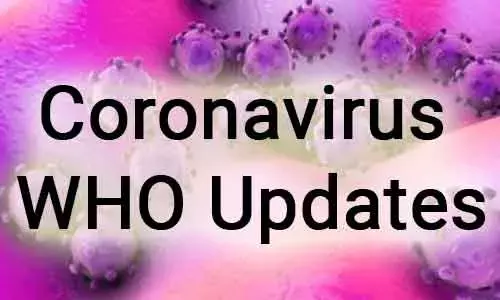- Home
- Medical news & Guidelines
- Anesthesiology
- Cardiology and CTVS
- Critical Care
- Dentistry
- Dermatology
- Diabetes and Endocrinology
- ENT
- Gastroenterology
- Medicine
- Nephrology
- Neurology
- Obstretics-Gynaecology
- Oncology
- Ophthalmology
- Orthopaedics
- Pediatrics-Neonatology
- Psychiatry
- Pulmonology
- Radiology
- Surgery
- Urology
- Laboratory Medicine
- Diet
- Nursing
- Paramedical
- Physiotherapy
- Health news
- Fact Check
- Bone Health Fact Check
- Brain Health Fact Check
- Cancer Related Fact Check
- Child Care Fact Check
- Dental and oral health fact check
- Diabetes and metabolic health fact check
- Diet and Nutrition Fact Check
- Eye and ENT Care Fact Check
- Fitness fact check
- Gut health fact check
- Heart health fact check
- Kidney health fact check
- Medical education fact check
- Men's health fact check
- Respiratory fact check
- Skin and hair care fact check
- Vaccine and Immunization fact check
- Women's health fact check
- AYUSH
- State News
- Andaman and Nicobar Islands
- Andhra Pradesh
- Arunachal Pradesh
- Assam
- Bihar
- Chandigarh
- Chattisgarh
- Dadra and Nagar Haveli
- Daman and Diu
- Delhi
- Goa
- Gujarat
- Haryana
- Himachal Pradesh
- Jammu & Kashmir
- Jharkhand
- Karnataka
- Kerala
- Ladakh
- Lakshadweep
- Madhya Pradesh
- Maharashtra
- Manipur
- Meghalaya
- Mizoram
- Nagaland
- Odisha
- Puducherry
- Punjab
- Rajasthan
- Sikkim
- Tamil Nadu
- Telangana
- Tripura
- Uttar Pradesh
- Uttrakhand
- West Bengal
- Medical Education
- Industry
COVID-19 remains a public health emergency of international concern: WHO maintains highest alarm status

Geneva,: The World Health Organization (WHO) Director-General Tedros Adhanom Ghebreyesus said on Friday that the COVID-19 outbreak still constitutes a Public Health Emergency of International Concern (PHEIC).
"Of course, the COVID-19 pandemic remains a Public Health Emergency of International Concern," he said at a virtual press conference from Geneva, Xinhua news agency reported.
Tedros declared a PHEIC, WHO's highest level of alarm, over the novel coronavirus outbreak on Jan. 30, when there were 82 cases outside China. Later the disease caused by the virus was named COVID-19.
Under the International Health Regulations, the WHO director-general has the authority to determine that an outbreak constitutes a PHEIC when certain conditions are met, and the decision should be reviewed every three months.
"WHO will continue supporting all countries with technical and logistical support, especially those that need it most," Tedros said at the press conference.
"As we have done clearly from the beginning, we will continue to call on countries to implement a comprehensive package of measures to find, isolate, test and treat every case, and trace every contact," he added.
The WHO chief also said that in accordance with the International Health Regulations, he will reconvene the COVID-19 emergency committee again in 90 days, or sooner if needed.
Medical Dialogues Bureau consists of a team of passionate medical/scientific writers, led by doctors and healthcare researchers. Our team efforts to bring you updated and timely news about the important happenings of the medical and healthcare sector. Our editorial team can be reached at editorial@medicaldialogues.in.


